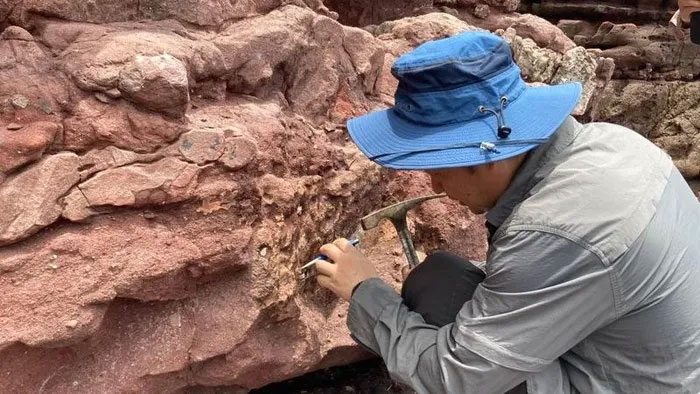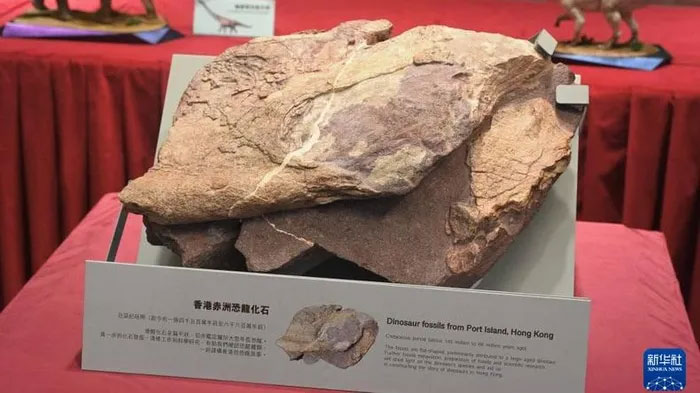Hong Kong (China) first discovered dinosaur fossils
Chek Chau Island, Hong Kong (China) discovered and excavated the first Cretaceous dinosaur fossil. This discovery has important significance in the study of the ancient ecosystem of Hong Kong (China).

Archaeologists collect fossil specimens on Chek Chau Island. (Photo: Xinhua)
Chek Chau Island in the northeast of Hong Kong (China) is located in a UNESCO World Geopark. In March this year, after receiving information that the sedimentary rocks on the island were suspected to contain fossils of vertebrates, the authorities of the Hong Kong (China) government conducted a survey and organized the collection of specimens.
After cutting the bone sample and analyzing it under a microscope, experts said that this was an ancient dinosaur fossil specimen from the Cretaceous period , but further research is needed to determine which species of dinosaur it belonged to.

Dinosaur fossils discovered on Chek Chau Island. (Photo: Xinhua)
This discovery is of great significance, providing new evidence for the study of the ancient ecosystem of Hong Kong (China).
To facilitate future survey, excavation and research, Chek Chau Island currently only allows relevant people to enter the island.
Starting from October 25, this dinosaur fossil will be displayed and introduced to the public at the Hong Kong Museum of Archaeological Discovery (China).
- The world's largest dinosaur skull is auctioned
- Photos of Hong Kong in the past and now
- China has discovered unprecedented dinosaur fossils
- Super volcano discovered in Hong Kong
- Hong Kong atmosphere is cleaner during the demonstration days
- Repeatedly discovered dinosaur fossils in Canada
- Pink dolphin - the symbol of Hong Kong is disappearing
- This stunning urban set of photos explains why Hong Kong is known as the 'concrete jungle'
- Hong Kong people 'cry out' because of light pollution
- China sees fossil dinosaur fossils
- Hong Kong discovered more cases of the 6th flu H7N9
- China: Discovered 130 million year old dinosaur eggs still intact
 Discovered an ancient centipede fossil 99 million years old
Discovered an ancient centipede fossil 99 million years old Discovered bat-like dinosaurs in China
Discovered bat-like dinosaurs in China Discovered a 200-year-old bronze cannon of the coast
Discovered a 200-year-old bronze cannon of the coast Discover 305 million-year-old spider fossils
Discover 305 million-year-old spider fossils